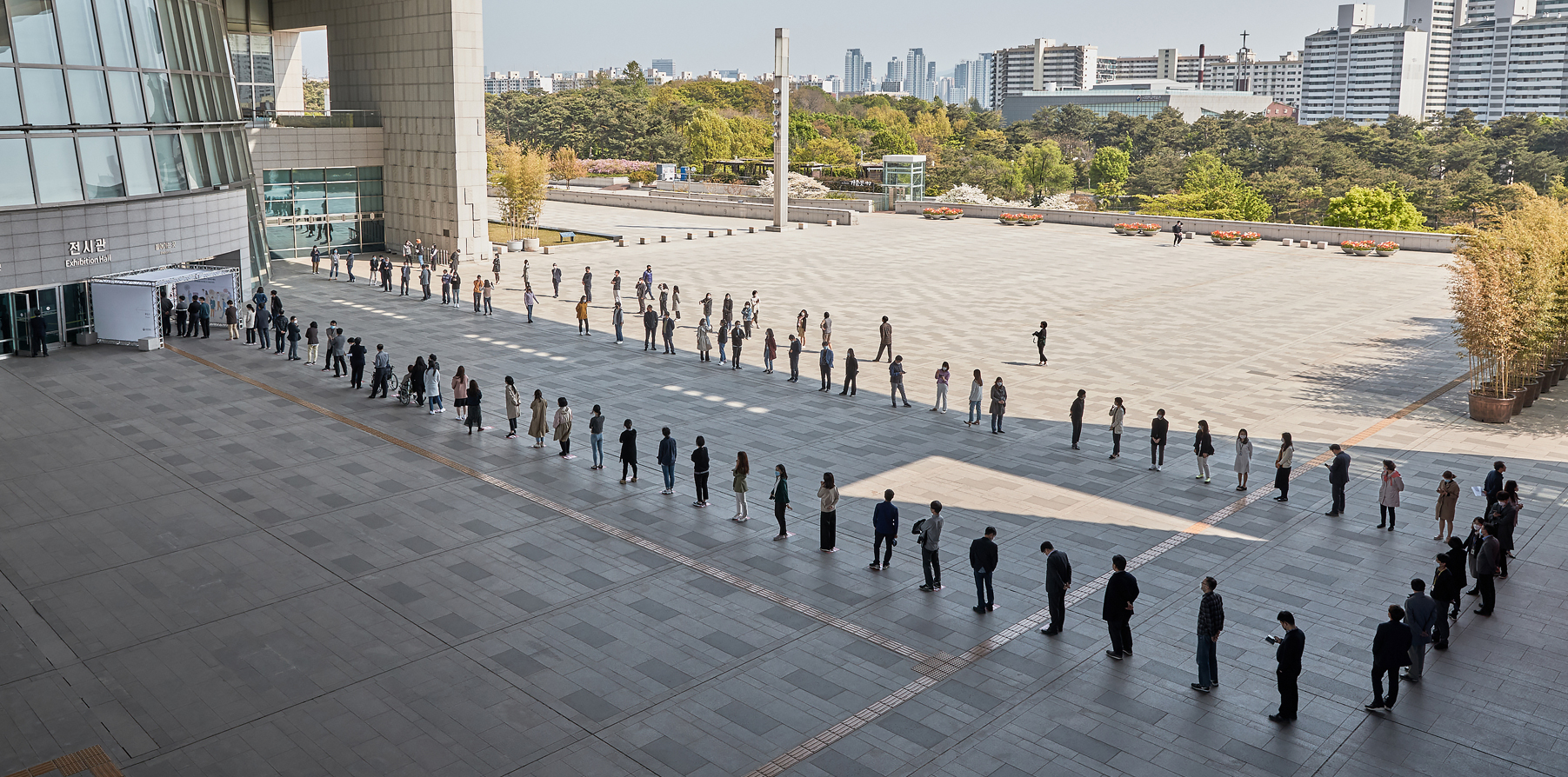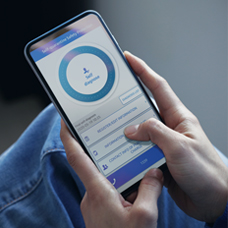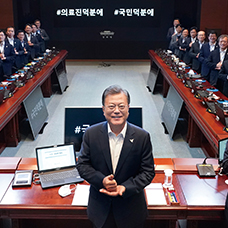STORY
Society After COVID-19
New Normal
Once second only to China in the number of infections worldwide, Korea has since earned global admiration in setting the gold standard for responding to the coronavirus pandemic. The Korea Centers for Disease Control and Prevention, to be upgraded to the Disease Control and Prevention Administration, has shown resoluteness, agility and shrewdness in its actions. And the nation’s leading biomedical companies and products, not to mention the effective health care system, are major factors behind the country’s exemplary handling of the crisis.
Written by• Choi Joon-ho,
Science & future reporter at JoongAng Ilbo
While ultra-fast internet and 5G connectivity represent Korea’s world-class information and communications technology (ICT), the country is also fighting the coronavirus through its ICT progress. Simply put, the pandemic has accelerated the onset of Korea’s future, forcing those wary of new methods to accept the new normal.
Announcing Microsoft’s quarterly earnings report to Wall Street in April, the company’s CEO Satya Nadella said, “We’ve seen two years’ worth of digital transformation in two months.” His comment reflects what Korean society is undergoing: rapid progress in futuristic technologies and processes.

© gettyimageskorea
Online Education
Kwon Young-sun, a professor at the prestigious Korea Advanced Institute of Science and Technology (KAIST), since early 2019 has run a pilot project of holding live online classes as the head of KAIST’s Internal Center for Excellence in Learning and Teaching. When the pandemic struck, he was preparing such classes for the 2020 school year, and thus his single course-oriented project was expanded into one covering the entire school. Sixty percent of the new system comprised livestreamed classes and 40% pre-recorded lessons for students to download.
Two months after the online classes commenced, the professor and his students mentioned no significant difficulties. A survey he conducted found that 40% of students found online classes “better than face-to-face” as opposed to 32% feeling otherwise.
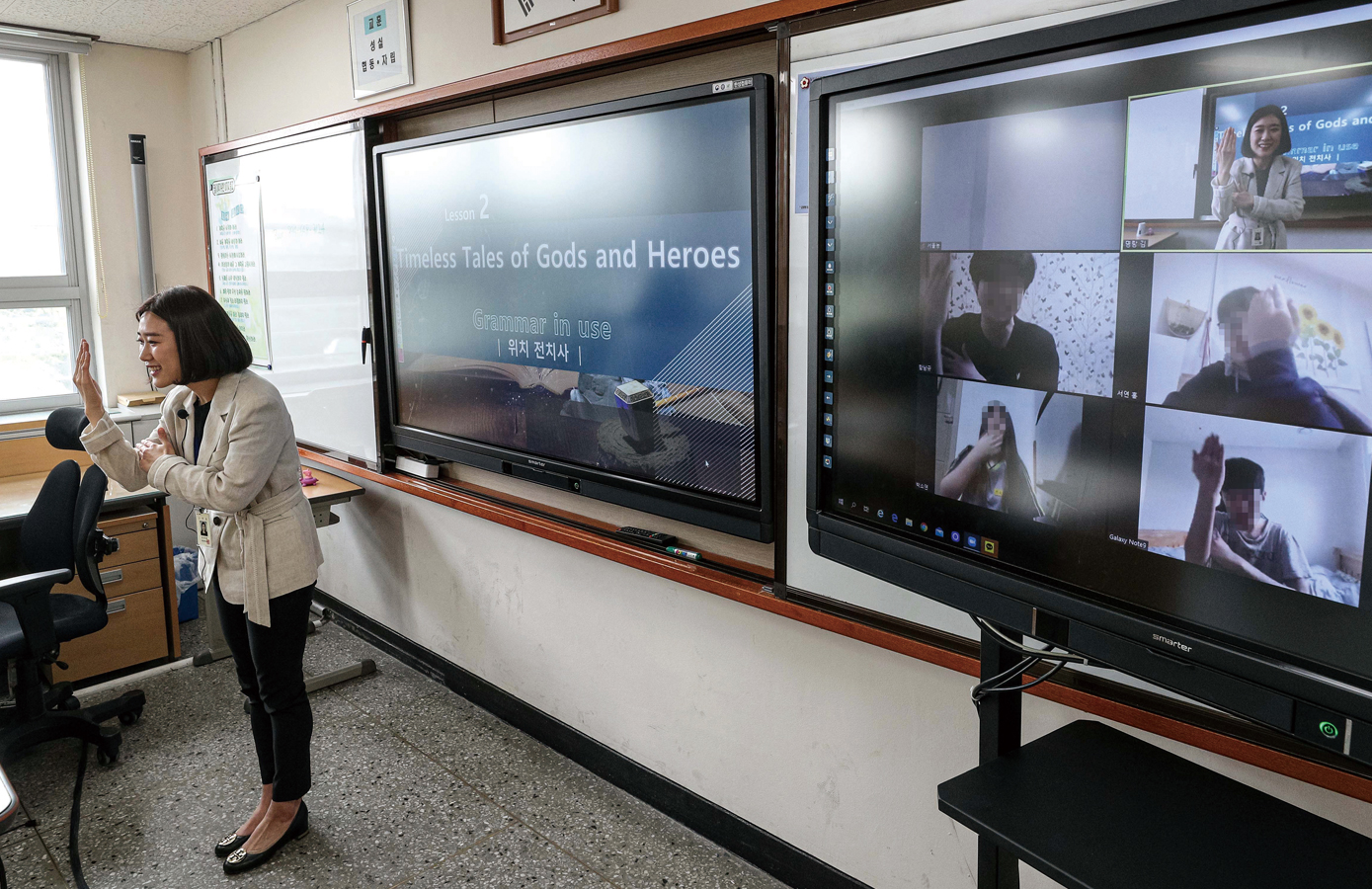
A class is livestreamed via webcam. © YonhapNews
Telecommuting
A journalist leaves for work at around lunchtime. Previously used to working remotely all day and being bound to his phone and laptop at home, he refashions his living room into a workstation, bringing in a new desk for this purpose. The beeping of online messages and incoming calls fills his home with noise. Even after his workplace lifts its temporary protocol for telecommuting, he needs to spend mornings at home to look after his children. Due to his wife leaving for work every morning, he works while simultaneously tending to his kids.
His excuse for working at home? “I’d rather spend that hour of commuting on further research and writing. It’s much more productive that way,” he said. Despite initial doubts over working remotely, he said he finds greater comfort in spending his day out of the office his way as long while staying digitally connected.
Webinars
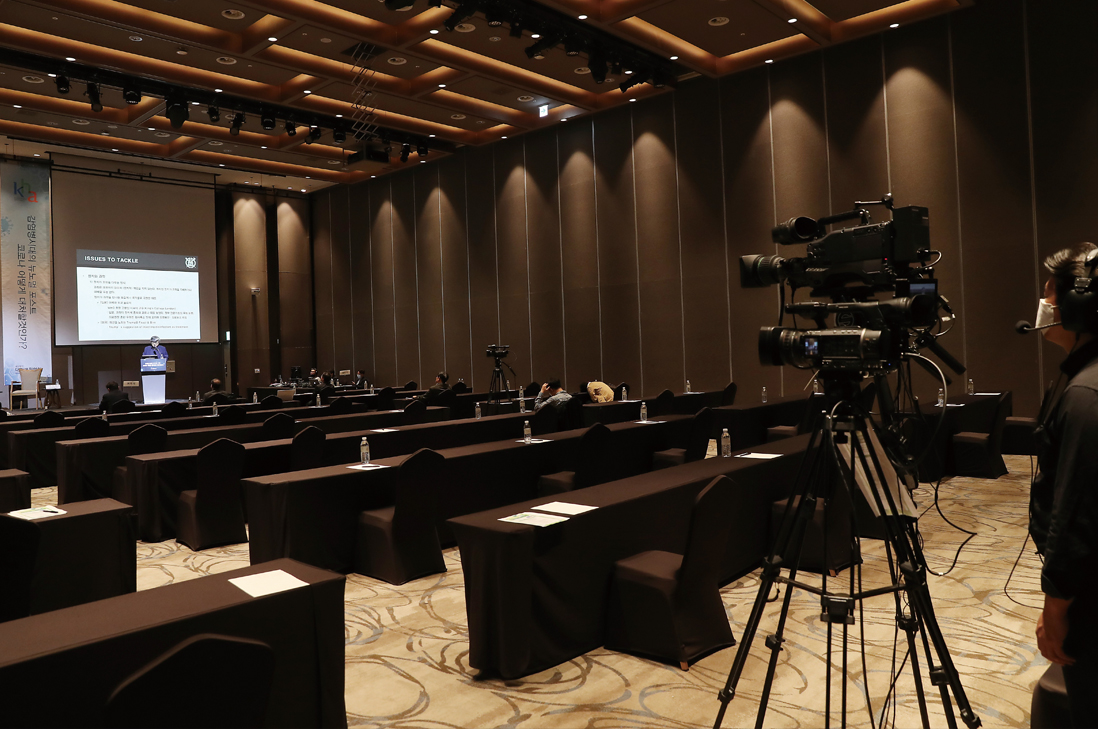
The holding of most events and conferences has shifted from offline to online. © YonhapNews
The Korea Association for Future Studies in February implemented a webinar system given its inability to hold its monthly offline seminars. Despite no after-parties, participants said they found more benefits in being free from time and locational restrictions. Those based in cities distant from Seoul like Busan and Jeonju, Jeollabuk-do Province, or who often work overtime at their day jobs can easily log in to webinars. Taking notes on the content also became easier. The Korean Federation of Science and Technology Societies also switched its scheduled forums for the year to “partially online.” Only the presenters need to show up and their presentations are livestreamed on YouTube, which enable questions and comments from participants or viewers. A federation manager said, “Despite being held online, recent forums have attracted recordbreaking numbers of participants,” adding, “Responses have been positive in widening the forums’ accessibility to prospective audiences with coinciding topics of interest.”
Post-COVID-19 Era
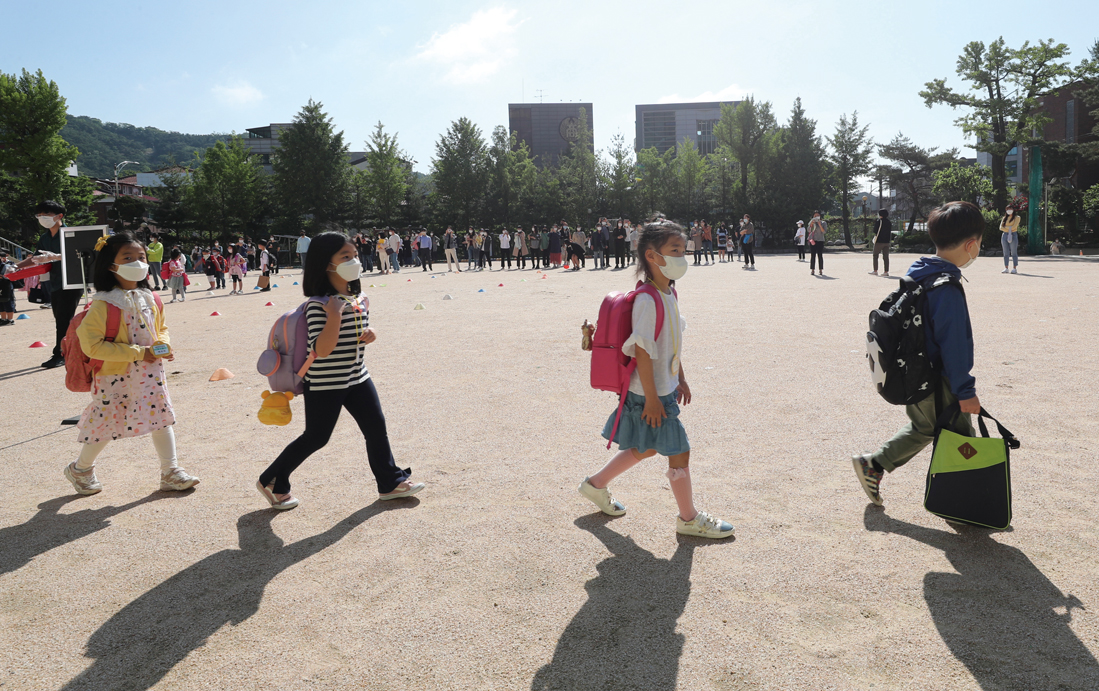
First graders on May 27 walk to their classrooms for the first time this year after attending their welcoming ceremony. © YonhapNews
Will the world return to “normal” after the pandemic subsides? Will students again fill classrooms on campuses and workers continue holding meetings offline? Experts predict major changes in how society works after COVID-19 ends. Despite its side effects, digitization offers numerous benefits that could prevent reversion back to the old normal after people get a taste of them.
KAIST plans to continue holding online classes even after the pandemic ends, especially for specialized programs for advanced degrees. Students had to physically attend class before the outbreak, but COVID-19 has forced a change in regulations and challenged the notion of offline lessons being a prerequisite. Four institutions teaching science and technology, including KAIST and Ulsan National Institute of Science and Technology, offer undergrads the option of taking classes at sister schools, meaning location is no longer a barrier to intellectual exchange.
Stereotypes of remote work have also declined. Samsung Group will offer its recruiting exams online, an unprecedented development in the conglomerate’s hiring history. Twitter CEO Jack Dorsey drew global attention when he announced a permanent policy for remote work for both Twitter and Square, and a similar trend awaits Korea’s labor force.
Though a movement toward lesser physical contact had been unfolding before the pandemic, the outbreak accelerated things on a global scale. Kim Nando, a Seoul National University professor famous for his books on annual trend projections, since 2018 has used his own neologism “untact.” This term indicates his forecasts for decreased human contact, or the need thereof, and the coronavirus accelerated the timing of his prediction.

